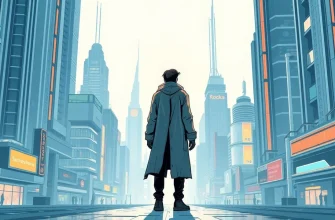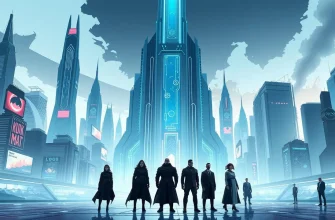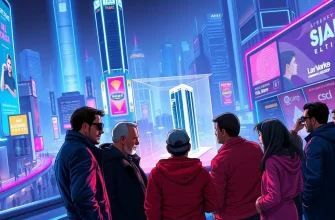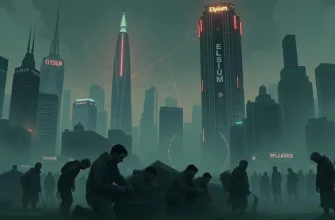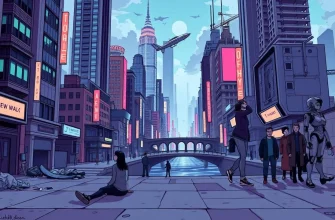Science fiction has always been a mirror to society, reflecting our deepest fears, hopes, and the myriad of issues we face. This curated list of 10 films not only entertains but also invites viewers to ponder over pressing social problems through the lens of speculative futures. From environmental crises to the ethics of technology, these movies provide a platform for reflection and discussion, making them invaluable for anyone interested in the intersection of science fiction and social commentary.

A Clockwork Orange (1971)
Description: Stanley Kubrick's adaptation of Anthony Burgess's novel delves into themes of free will, violence, and the ethics of behavioral modification.
Fact: The film was banned in several countries due to its violent content. Kubrick himself withdrew it from UK cinemas after threats to his family.
 Watch Now
Watch Now 
Brazil (1985)
Description: Terry Gilliam's dark comedy critiques bureaucracy, consumerism, and the loss of individuality in a surreal, dystopian world.
Fact: The film's title refers to the song "Aquarela do Brasil," which plays during the dream sequences. It was a troubled production with numerous conflicts between Gilliam and Universal Studios.
 Watch Now
Watch Now 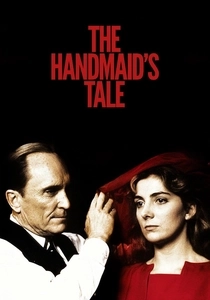
The Handmaid's Tale (1990)
Description: Based on Margaret Atwood's novel, this film explores themes of women's rights, reproductive freedom, and totalitarian control in a dystopian society.
Fact: The film was released before the TV series, which later became more well-known. It was one of the first adaptations of Atwood's work.
 Watch Now
Watch Now 
Gattaca (1997)
Description: This film tackles genetic engineering, eugenics, and the implications of a society divided by genetic superiority, questioning the ethics of human enhancement.
Fact: The film's title is based on the four nitrogenous bases of DNA: guanine, adenine, thymine, and cytosine. It was shot in a documentary style to give it a realistic feel.
 Watch Now
Watch Now 
The Matrix (1999)
Description: This film explores the concept of reality versus illusion, questioning the nature of free will and the control exerted by those in power, mirroring societal issues of manipulation and control.
Fact: The film's "bullet time" effect revolutionized visual effects in cinema. The Wachowskis, the directors, were inspired by anime and cyberpunk literature.
 Watch Now
Watch Now 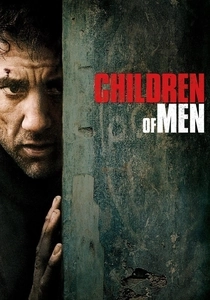
Children of Men (2006)
Description: Set in a dystopian future where humans can no longer reproduce, this film tackles themes of immigration, xenophobia, and the human spirit's resilience in the face of despair.
Fact: The film was shot using long, uninterrupted takes to enhance the realism and immersion. It was also based on a novel by P.D. James.
 Watch Now
Watch Now 
Equilibrium (2002)
Description: In a world where emotions are outlawed to prevent war, this film explores themes of individuality, freedom, and the suppression of human nature.
Fact: The film was influenced by classics like "Fahrenheit 451" and "
 Watch Now
Watch Now 
The Day After Tomorrow (2004)
Description: This disaster film highlights the catastrophic effects of climate change, urging viewers to consider the environmental impact of human actions.
Fact: The film was inspired by the book "The Coming Global Superstorm." It also featured groundbreaking visual effects for its time.
 Watch Now
Watch Now 
Elysium (2013)
Description: Addressing class disparity, healthcare access, and immigration, Elysium portrays a future where the wealthy live in a utopian space station while the rest suffer on Earth.
Fact: The film's title refers to the Elysian Fields, the final resting place of the heroic and virtuous in Greek mythology. It was also Neill Blomkamp's follow-up to his debut, "District
 Watch Now
Watch Now 
The Lobster (2015)
Description: This film satirizes societal pressures to find a romantic partner, exploring themes of loneliness, conformity, and the absurdity of human relationships.
Fact: The film was shot in Ireland, with many scenes filmed in a hotel that was closed for the production. It won the Jury Prize at the Cannes Film Festival.
 Watch Now
Watch Now 


